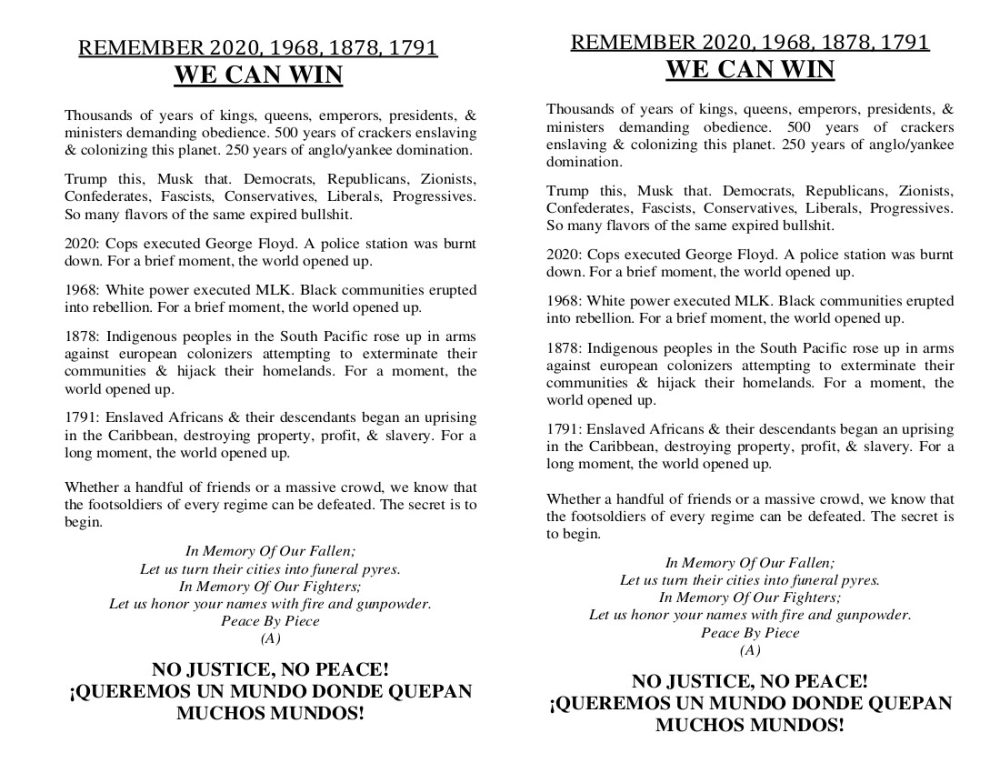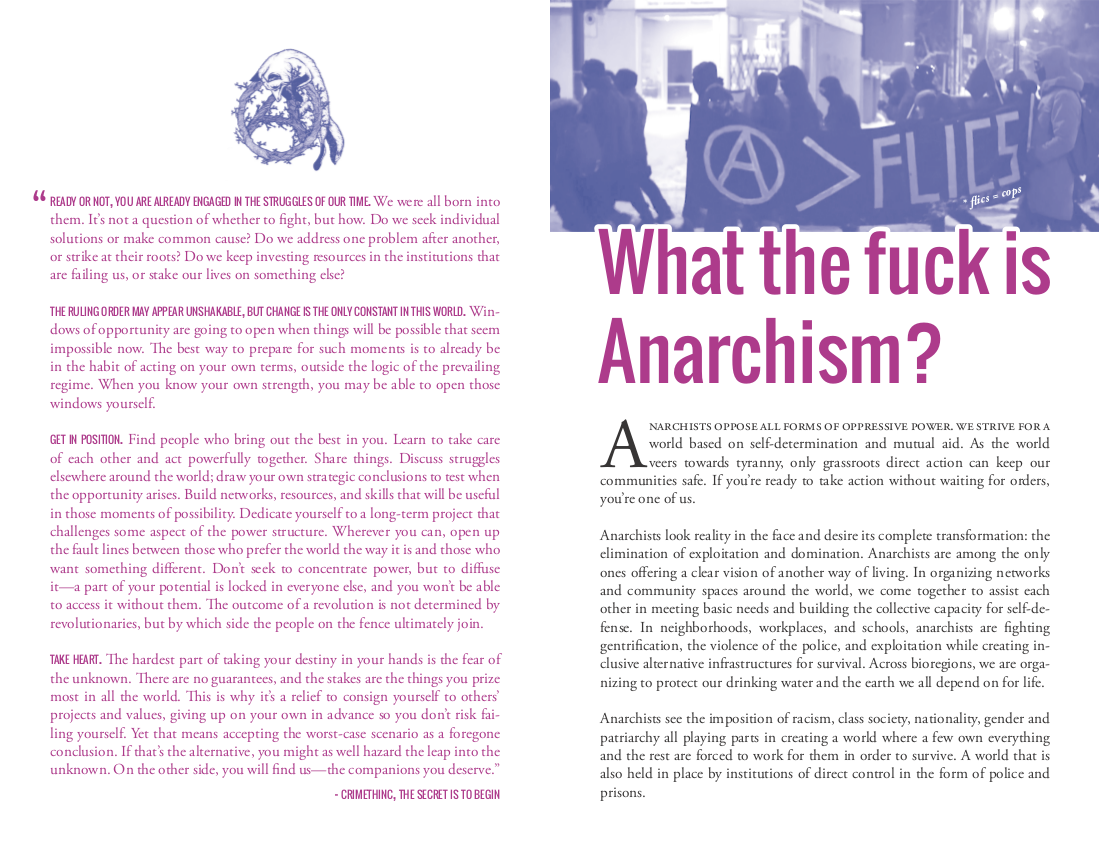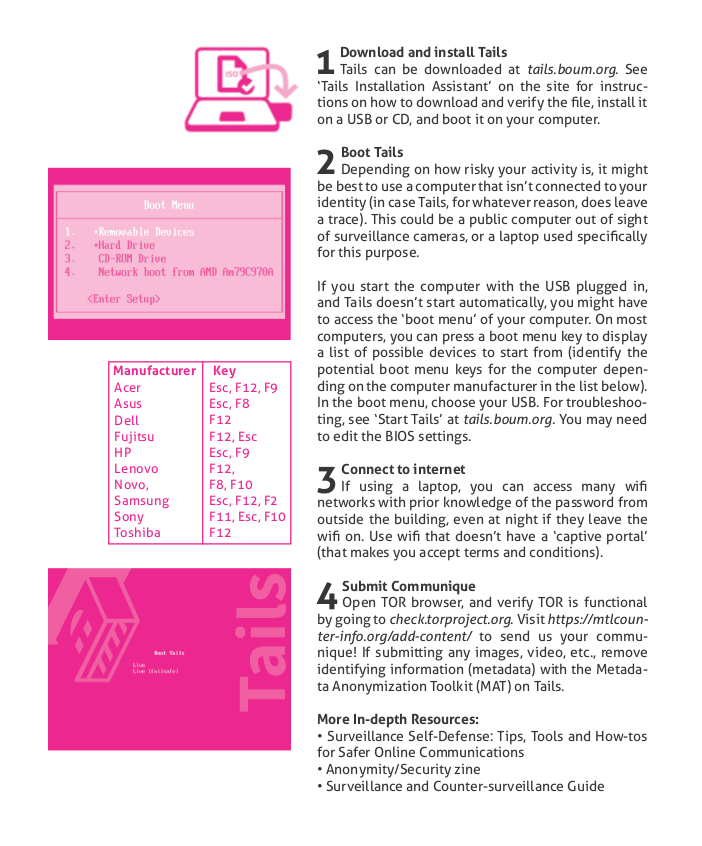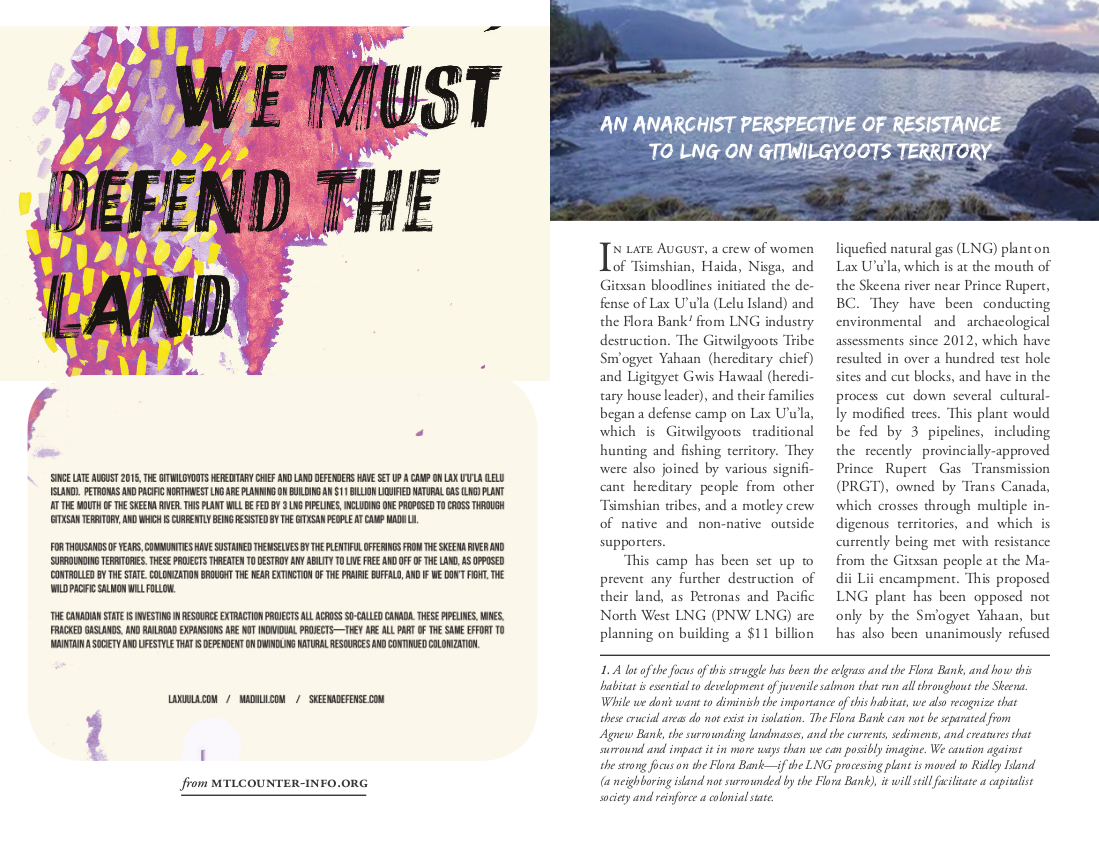From La Solide, adapted from IGD
This is a challenge to anyone who is supportive of the September 9th prisoners’ strike but who has remained on the sidelines until now.
In order for this strike to not be snuffed out by a handful of prison censors and violent guards, it needs to spread uncontrollably beyond their reach. And because prisons strictly forbid communication between prisoners, it is our responsibility on the outside to facilitate this contagion. Spreading the call to prisons in Canada will further this contagion, and give an opportunity to link our struggle against prison and the world that needs it, through prison walls and across borders.
The first obvious step is to begin sending in word of the strike, immediately. If people on the inside are to be able to meaningfully act, they are going to need some time to begin spreading the word to their friends and formulating a plan. To that end, we are suggesting that outside accomplices begin printing the strike announcements (below) and mailing them inside en masse.
Mail to whom you ask? To anyone! To your old high school friend stuck in county jail, your friend’s little sister in juvie, to Black Liberation prisoners who have inspired you, your neighbor’s relative in an immigrant detention center, or to that person on the local news who robbed four (!) banks before she finally got caught last year.
If you’re not able to provide ongoing support to the people you mail or if you give a fake return address, please be clear about that in your letter. People on the inside need to know if people on the outside will have their backs or not. If you do maintain communication with people you contact, however, be opaque and creative in the ways that you talk about these things. Use different return addresses to confuse prison censors, or find clever new ways to get information inside without it being attached to your legal name. And don’t forget to act as a signal booster for their actions; for instance, if the strike has taken hold, and/or the prison is retaliating against them, post that info to sites like lasolide.info, itsgoingdown.org or supportprisonerresistance.noblogs.org so that people can organize call-in’s or other solidarity actions to target the prison administration.
“Right away, one shouldn’t be able to start a university course, a theater performance or a scientific conference without someone directly intervening or letting loose a rain of flyers that pose the questions, ‘What has become of the prisoners on strike?’ and, ‘When will the authorities give in to their demands?’ No one should be able to walk down any street in the U.S. without seeing news of the prisoners’ struggle on the walls. And the songs that are sung about them must be heard by all.”
There’s no denying that this is a historical moment, a rare opportunity that simply cannot missed. There are no sidelines in a world without leaders. Everyone has a role to play so let’s get going!
Flyer, 8.5″x11″(Text to be printed and sent into prisons)
Here is the content:
Things are heating up in the prisons!
The letter that follows was written by inmates of American prisons involved with the IWOC (Incarcerated Workers Organising Commitee). They wrote it to inform you of a massive struggle that will rock many American prisons this September 9th. There will be a coordinated prison strike, with the goal of putting an end to prison slavery. In the US, private businesses have inmates work in federal and state prisons, in exchange for abysmal salaries. The use of their work force is an integral part of the economy of the country. All this in a context of institutionalized racism where the majority of inmates are black and latino; where slavery never ended.
In Canada, imprisonment is no less unbearable; society itself produces the crimes of those it imprisons, especially by keeping them in precarious living conditions. By no accident, the majority of people who find themselves in prison are there for these “crimes” caused by the absence of possibility offered by this society to those who its marginalizes. Colonial violence and white supremacy are perpetuated here as well: indigenous and racialized people, in particular the women in these communities, are massively overrepresented in Canadian prisons. Although the act of working can help to pass the time and is perceived as a privilege, businesses (like CORCAN) exploit prisoners in exchange for ridiculous salaries. These businesses profit from the vulnerability of inmates who are still considered sub-humans, and exploit their labour and their time.
For instance, diverse struggles have taken place in the last years against prisons in Canada. At this moment, around sixty detainees are on hunger strike at the immigrant detention centre in Lindsay, Ontario, to demand a maximum time limit to detention without charge for people who don’t have status. As well, in 2015 and 2016 there were two hunger strikes in the maximum correctional centre in Regina, Saskatchewan to demand more hours of yard time, and in 2013, there was a strike against the salary cuts in federal prisons. Organizing in prison is never easy, and yet here are concrete examples.
We wish to transmit this call for solidarity, firstly to keep you in the loop. We are aware of the difficulty of communicating between inmates in different establishments. If you are interested in contributing in any way, if you would like to write a letter of solidarity to prisoners on strike, or if you would like to communicate with people who wrote this introduction, you can get in touch with
lasolide@riseup.net
or write as at
PRS c/o CKUT,
3647 rue University, Montréal, Québec, H3A 2B3
…until we are all free
La Solide
Announcement of Nationally Coordinated Prisoner Workstoppage for Sept 9, 2016











